Industrial Cameras With Timestamping Features Are Overpriced
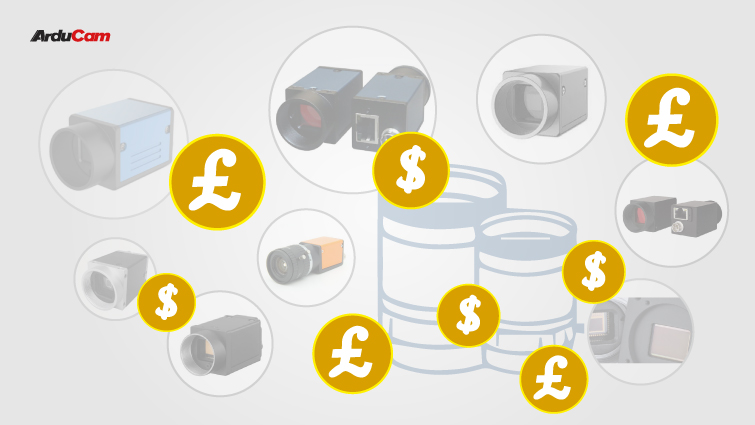
Timestamping, as part of the key features of GigE Vision cameras, is often paired with Precision Time Protocol to accurately synchronize/trigger multiple cameras in industrial imaging systems.
For camera modules with on-device clocks, timestamps can be produced to mark frames or to calculate intervals. Timestamped frames provide additional information on when each and every frame is captured, an experienced vision system developer can utilize such information to build more sophisticated multi-camera applications, or to design highly coordinated machine vision solutions where the image/video data can be combined with various signals from other sensors to deliver better results and higher efficiency.
A camera project or system is guaranteed to be cost-intensive whenever industrial cameras are involved. If there’s a way to bring key features like timestamping down to camera modules that offer nearly identical specifications and cost less, we can create more affordable camera solutions for many industrial applications.
The good news is, Arducam has prepared to fill this gap.
Arducam Makes Hardware Timestamping Available For Our USB 3.0 Cameras
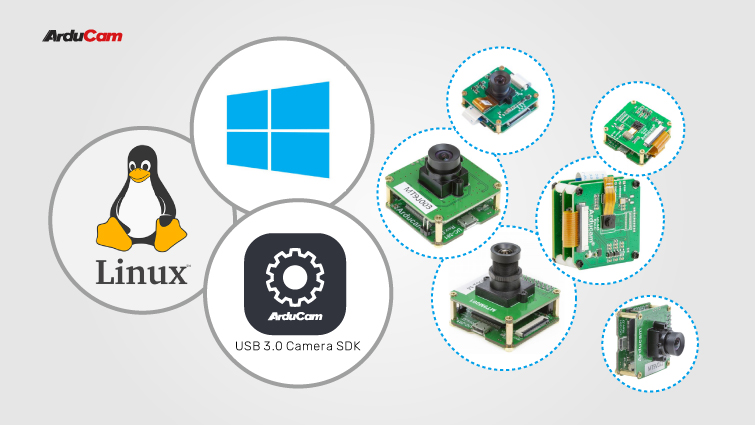
The latest SDK and USB3 camera shield Plus adds hardware timestamping support. By using the module’s internal device clock and synchronizing it with the UTC time system from the host PC’s SDK, every single frame is appended with an accurate global timestamp. Everyone can synchronize Arducam cameras and any other sensors within the system, and specific frames with historical timestamp data can be easily post-processed for cross-references or integrated into other applications.
SDK for Windows & Linux
Software SDK and API for Windows
Arducam provides software SDK and API for C++ and Python. We also provide a GUI program created with Microsoft Visual Studio 2010 and based on the MFC framework. The latest device driver, SDK library and examples can be downloaded from https://github.com/ArduCAM/ArduCAM_USB_Camera_Shield.
Synchronizing Multiple Camera Modules with Microsecond Accuracy
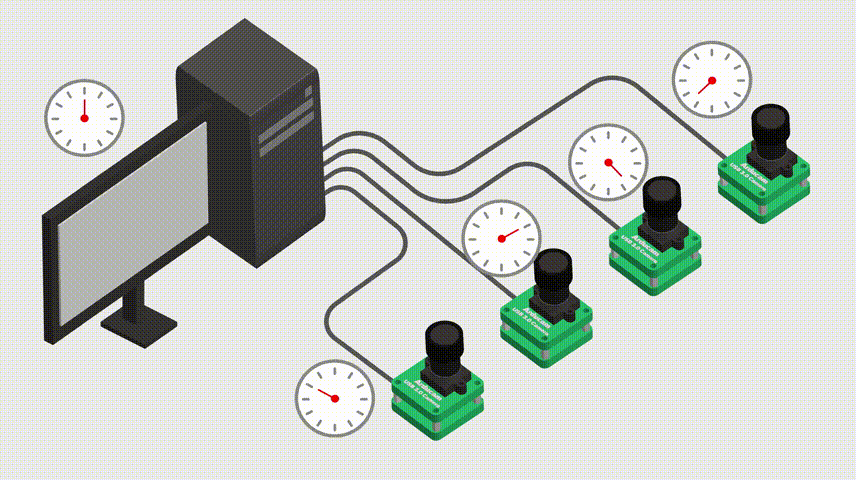
Unlike the Precision Time Protocol, which only works with GigE Vision camera modules and requires a PTP-master for timestamp synchronization. Our USB 3.0 camera solutions with hardware timestamping can offer the same microsecond-level (less than 100μs) latency with or without any external triggers/controls.
Cameras with synchronized clock signals can be utilized for image/video stitching to create panoramic/3D views, or stereo vision applications like depth sensing and 3D reconstruction, or object and movement tracking systems, etc.
The Arducam USB 3.0 camera’s internal clock management system keeps timestamps consistent with the host computer; you can quickly build multi-camera evaluation systems based on any image sensors (0.3 ~ 21MP) that are synchronized with industrial-grade accuracy.
Synchronizing Camera Module With IMU, GPS, and Other Sensors
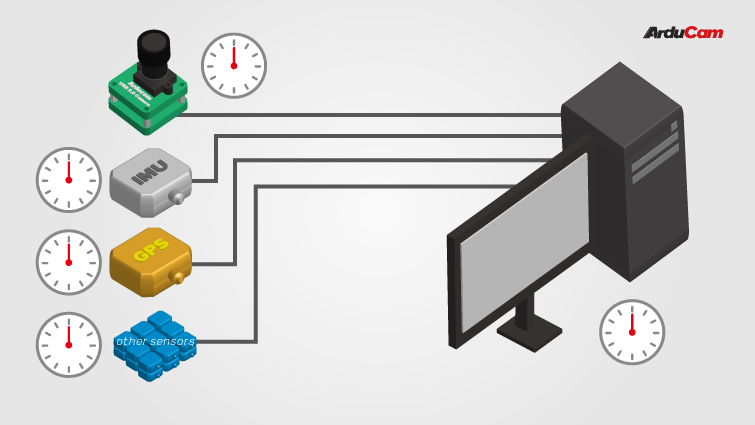
Other than synchronizing multiple image sensors, there are also other ways to leverage hardware timestamping.
Many visual-inertial odometry (VIO) applications, like VI-SLAM and autonomous navigation, use cameras that are synced with IMUs (inertial measurement unit). In use cases like visual geo-localization or real-world video analytics, timestamped frames from a camera are also used for the purpose of GPS synchronization. The Street View of Google Maps or the Apple Look Around technology, are actually combined data from spherical cameras (a multi-camera set), GPS, and various sensors, synchronization is the key.
A timestamping-enabled camera module with a USB 3 interface can work with any operating systems to sync image data with any types of sensors.
USB 3.0 Camera Shield: More Than Just Timestamping & Syncing
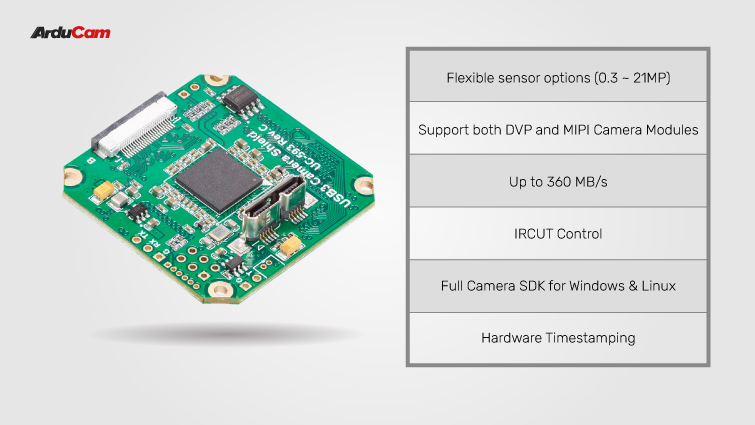
Our exclusive USB3.0 camera solutions have:
- Support DVP camera module( 8/10/12bitPixel color depth; RAW/YUV/RGB/JPG; VSYN, PCLK).
- Support MIPI camera module( 1/2/4 Lane; RAW8/RAW10/RAW12; RAW/YUV/RGB/JPG ) up to 21MP.
- The maximum output bandwidth of USB3.0 is 360MB.
- Build-in IRCUT control (optional).
- Free binary SDK library and demo software source code for both Windows & Linux.
- Support hardware timestamps.


